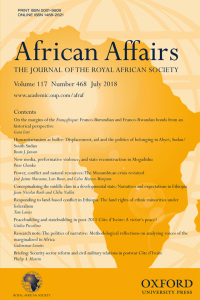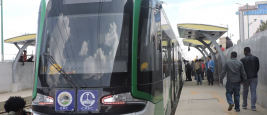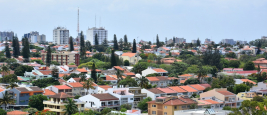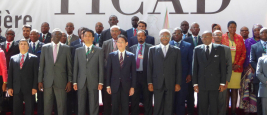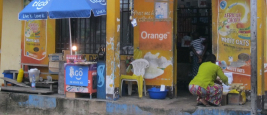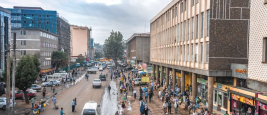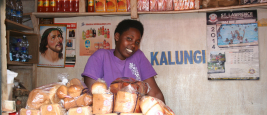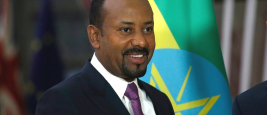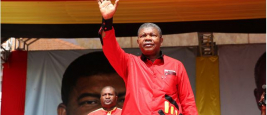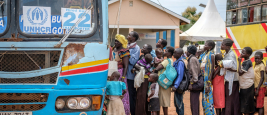The category ‘middle class’ was used increasingly throughout the 2010s to identify social changes occurring in African countries, including Ethiopia. However, the category itself is hard to define and has been employed to describe very diverse socio-economic dynamics.

Socio-economic Transformation of Africa

The Socio-economic Transformation of Africa research axis whithin Ifri's Sub-Saharan Africa Center focuses on African middle-classes, on African cities as a growth factor, on the urbanization of the continent as an element of transformation of African societies as well as on competition for access to land.
Research Fellow, Director of Ifri's Sub-Saharan Africa Center
...Research Fellow, Coordinator of the Governing the Urban Transition in Africa research program, Ifri's Sub-Saharan Africa Center
...Associate Research Fellow, Sub-Saharan Africa Center / Center for Energy and Climate
...Associate Research Fellow, Sub-Saharan Africa Center and Turkey/Middle East Program
...Associate Research Fellow, Coordinator of the Observatory of Central and Southern Africa, Sub-Saharan Africa Center
...Since 2011 and the end of the post-election crisis, Côte d’Ivoire has returned to impressive economic growth. The country and its capital are drawing attention from a growing number of investors, and the “Abidjanian middle classes” are widely publicised and sought after.
In September 2015, Addis Ababa introduced the first Light Rail Transit system (LRT) in sub-Saharan Africa. This tram, a symbol of Ethiopian renewal, was nevertheless barely used by the capital’s residents during the first few months. However, at the time of our research trip in April 2017,...
Maputo, the capital of Mozambique, is driven by fascinating urban dynamics. The country’s institutional setting is influenced by the legacies of the different political regimes of the last 50 years, which have left visible traces on the urban fabric.
What is the political significance of Southern Africa’s “hashtag movements”, socio-political campaigns using social media to disseminate information and to mobilise concerned and previously quiet segments of the public?
By organising TICAD (Tokyo International Conference on African Development) for the first time in Africa in August 2016, Japan intended to accelerate and deepen its relationship with the continent.
What makes you middle class? Is it your income, occupation, or education? Your family background or maybe the house and neighbourhood you live in? It is probably all of these things.
For many observers, a change in perception of the African continent occurred in the 2010s. Attention has focused on the relatively high rates of economic growth and a high population growth associated with urban expansion; both indicators interpreted as promises of economic “emergence” leading...
Up until recently, little attention has been paid to the crisis which the Ethiopian regime has nonetheless been sinking into for more than two years. The rare spotlights focused on this country have praised its economic performance, describing it as a new “Far East” or even an “African lion”....
In January 2016, the Kenyan supermarket chain Uchumi has filed bankruptcy for its Ugandan subsidiaries, due to perpetual losses. And they are not alone: companies like Nestlé, Coca Cola or Barclays are slowly pulling out of Africa and recent reports – such as the
How can Sub-Saharan African countries cope with COVID-19? Les Jeudis de l'Ifri
A "Les jeudis de l'Ifri" videoconférence around Alain ANTIL, Director of Ifri's African Studies Center.
Political and economic reconfigurations under Abiy Ahmed in Ethiopia
Since taking over as head of the Ethiopian government in April 2018, Abiy Ahmed has increased his openness: the lifting of the state of emergency, the release of political prisoners, the announcements of economic openness and privatization of national enterprises. Regarding foreign policy,...
Angola : from Dos Santos to Lourenço, Unexpected Transition, Lasting Transformation?
As part of the Observatoire of Southern Africa and the African Great Lakes, Ifri organizes this conference on Angola in collaboration with the Directorate General for International Relations and Strategy of the...
Migration in East Africa: A Regional Challenge and a Global Issue
The arrivals of refugees from East Africa in Europe have continued to increase since 2015. However, this situation should not gloss over the fact that migration is mainly a regional phenomenon: East Africa, alongside Middle East, hosts currently more refugees than any other regions in the...
What development prospects for industrialisation in Africa?
Industrialisation in Africa is a necessary and major process to support the continent's economic development. Although Africa will keep its demographic growth running, the industry sector only represents 1...
Aucun résultat








